17th Phulbari Day Statement
Yesterday marked 17th Phulbari Massacre Day. On 26 August 2006 three children were shot dead by paramilitary force and more than 200 people were injured during a protest against plans by a London-listed mining company (then Asia Energy, now renamed GCM Resources) for a huge opencast coal mine which would forcefully displace 130, 000 people from the area. The three murdered children are namely Al Amin, Mohammad Saleqin and Tarikul Islam. The children are aged 11,13 and 18 respectively. The day is nationally known as Phulbari Day. People of Phulbari are still waiting for justice in Bangladesh. Hundreds of people in Phulbari, Dinajpur, and Dhaka have honoured the dead by commemorating and rallying in Phulbari martyrs’ monument and at Dhaka Shahid Minar earlier today. The organisers of the events have called upon Bangladesh government to oust GCM from Bangladesh and ban open cast coal mine.
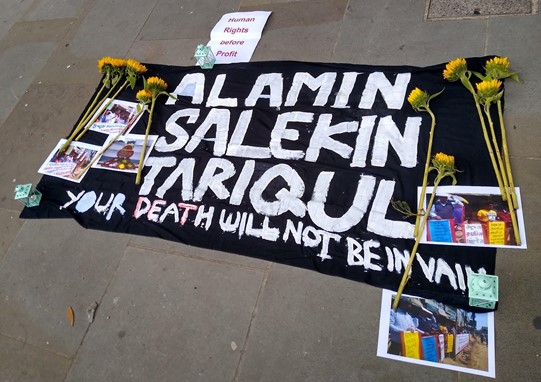
We, Phulbari Solidarity Group and London Mining Network, stand in solidarity with the families of the victims and the protesters in Phulbari as ever. Echoing Phulbari protesters, we call on both the Bangladesh and the UK government to take immediate action to ban coal mining, take legal action against GCM Resources, demand justice for Phulbari people. We have organised protests and commemoration rally in London Stock Exchange and Bangladesh High Commission in the past. Our demand are yet to be implemented. This year we did not hold in person event but we want to reaffirm our original demand. Phulbari Solidarity Group together with London Mining Network, XR Youth Solidarity, Christian Climate Action and others have many times rallied to commemorate the event and called for GCM to be delisted from the London Stock Exchange and abandon its Phulbari project in the past . But the government in Bangladesh and the UK are yet to take action to ensure justice for victims in Phulbari.
a
On 26 August in 2021 and 2022, transnational and Bangladeshi climate justice activists gathered outside the Bangladesh High Commission in London to pay tribute to the victims of the Phulbari Massacre in 2006. Anti-mining activists held Remembrance rallies to mark the 15th and 16th anniversary of the Phulbari Massacre, and we have called on the High Commissioner to push for the delisting of GCM Resources from the London Stock Exchange and the banning of new coal projects in Bangladesh. The High Commissioner did not meet us and did not receive our memorandum. Likewise, we have held three vigils to commemorate the Phulbari victims in front of London Stock Exchange on 10th, 13th and 14th anniversary of Phulbari Massacre, and handed over three memorandums to the CEOs of London Stock Exchange. But they did no take action. Shame on them.

Bangladesh High Commission is fully aware that the London Stock Exchange is hosting a company that is responsible for gross human rights violations and that does not have a valid license for business in Bangladesh. But they are not taking action to prevent this crime. 17 years on, the company GCM Resources, continues to grab money by selling deceitful shares on Phulbari’s name. The company does not hold any valid asset to operate in Phulbari and does not have permission for mining anywhere in the world. Bangladesh’s state minister stated in 2019 that the government will take legal action against GCM. Its’ been four years since. We have written to LSE’s Chief Financial Officer and Chief Executive Officers three times, and submitted evidence showing that GCM is involved in fraudulent business at LSE. The London Stock Exchange did not de-list GCM. The Bangladesh government is yet to take legal action against the company.
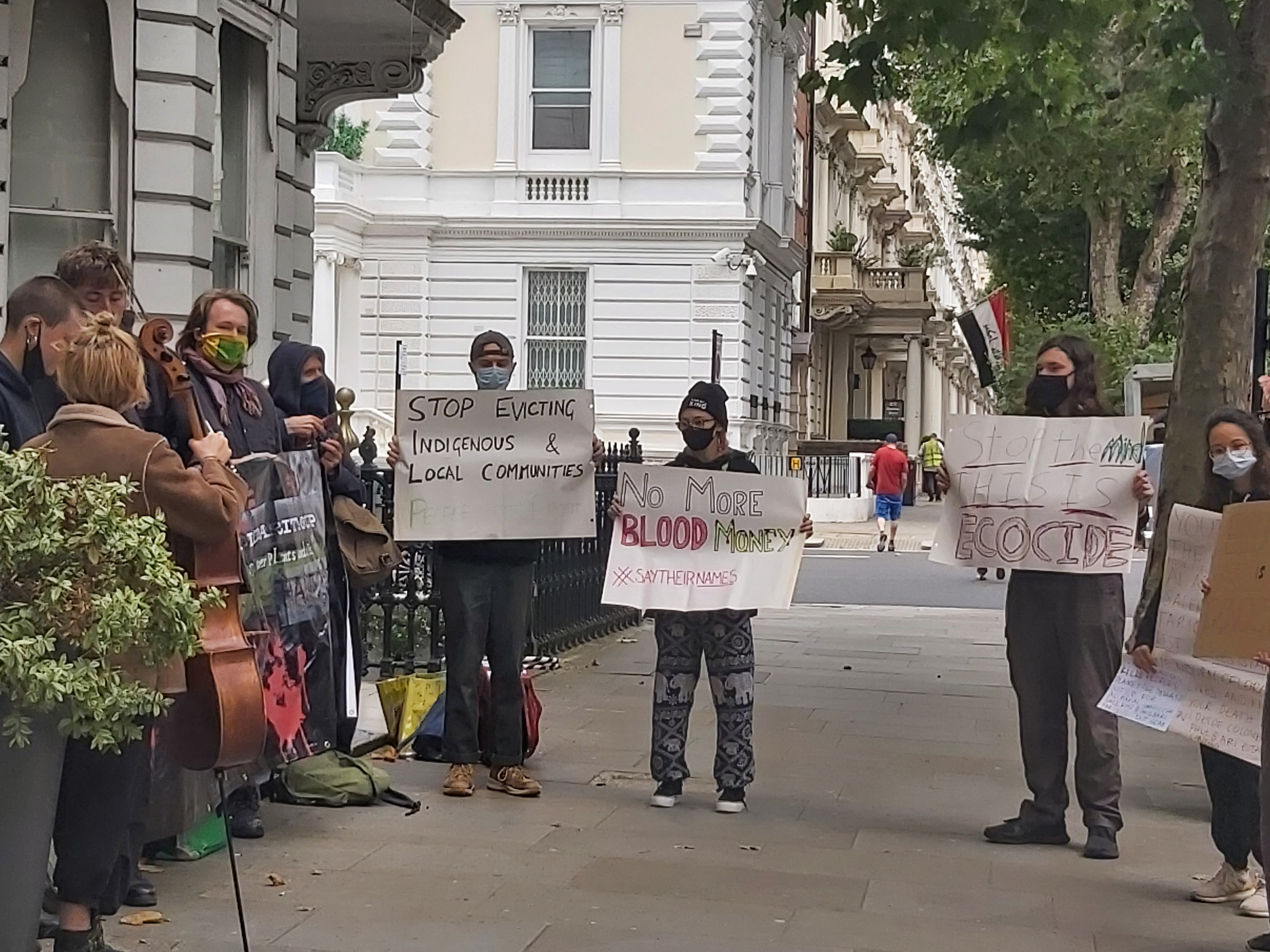
We are outraged by the delay in banning coal mining in Bangladesh, and we are enraged by the inaction of London Stock Exchange, Financial Conduct Authority, and Alternative Investment Market who failed to de-list GCM from London Stock Exchange.
The Phulbari Solidarity Group’s Founder and Co-ordinator, Rumana Hashem, said:
“We remember and respect Al Amin, Mohammad Saleqin and Tarikul Islam. These three children were killed on 26 August 2006 when a paramilitary force opened fire, in favour of the British mining company, during a nonviolent demonstration of an estimated 80,000 people against the eviction of 130,000 people in Phulbari to make for a 572-million ton open cast coal mine. We will continue to call on the UK government and Bangladesh government to take legal action against GCM Resources, to de-list GCM from London Stock Exchange, and ban mining in Bangladesh.”
Of the campaign to de-list GCM, Richard Solly (Network Coordinator of London Mining Network) said:
“Since LMN was launched in 2007, we have supported the struggle against the Phulbari project. It is utter madness for GCM to keep pressing on with a new opencast coal project which would displace tens of thousands of people dependent on rural occupations, with no guarantee that they could find alternative work, and at a time when we know we have to stop burning coal anyway. UK authorities should not allow London share markets to be used to finance this kind of destructive project. GCM should be delisted.”
Extinction Rebellion Youth Solidarity spokesperson, Sara Cordovez, said:
“As XR Youth Solidarity, we stand with the Phulbari Solidarity Group in marking the 15th anniversary of the Phulbari Day shooting. For us at XR Youth Solidarity, Phulbari Day represents the undeniable link between people and planet: our global fossil-fuel addicted economy is killing people, directly and indirectly, and driving us towards the ecological and climate collapse, while leaving communities like Phulbari to mourn for the youth that stood against this fate. We stand united against GCM and emphatically condemn their continued listing in the London Stock Exchange.”
Speaking from Bangladesh, Professor Anu Muhammad , Member Secretary of the central National Committee to Protect Natural Resources said:
“ This is unbelievable that a fraud company like GCM which has no credibility even as a business house, rather it has blood in its hands, lies in their leaps, falsehood in their papers, poison in their activities- still enjoying support from British establishment to continue with these. This company has been cheating people in share business to make money in the name of Phulbari where they were behind killing people, on which they have no valid license, where they tried to implement a disastrous project, from where they were driven out in 2006 by a mass uprising and never allowed to enter.
Since 2006, in all these years they have been trying to incite violence in the area, tried to mobilize criminals against community leaders, made false cases against them, but could not enter into the area. People’s resistance remains strong. These frauds should also be driven out by British institutions including LSE. We are looking forward to seeing the trial of these criminals in Dhaka and London .”
Sara Caldwell of Women of Colour GWS & International Global Women’s Strike (UK, India, Ireland, Peru, Thailand, USA), said:
“The determined resistance of women in particular halted plans for a devastating coal mine. People of Phulbari — women, men and children, are acting also for us and we must act with them. Our thoughts are with the families of the children shot dead by paramilitaries, and those injured. These brutal attacks did not to stop protests. Women, as often happens, were central — on marches, road blocks, and even courageously chasing away paramilitaries with brooms and cooking utensils to protect lives. Your strength is an inspiration to us all. We will publicise your struggle especially during the weeks of climate action to end polluters – we must abolish multi-national polluters to save the planet and ourselves. Grassroots women are the carers everywhere. They and all carers for people and planet deserve a income to strengthen our struggle and win. Power to Phulbari, India’s farmers, Haiti, Burma, Marikana and all organising for justice and to save our planet!”

Contact Information
Phulbari Solidarity Group is a collective of anti-mining and climate justice activists from Bangladesh and Europe. We work to prevent coal mine and challenge multi-national extractive companies in Bangladesh and the UK.
London Mining Network (LMN) is an alliance of human rights, environmental and solidarity groups. We work together to support communities harmed by London-based and financed mining companies.


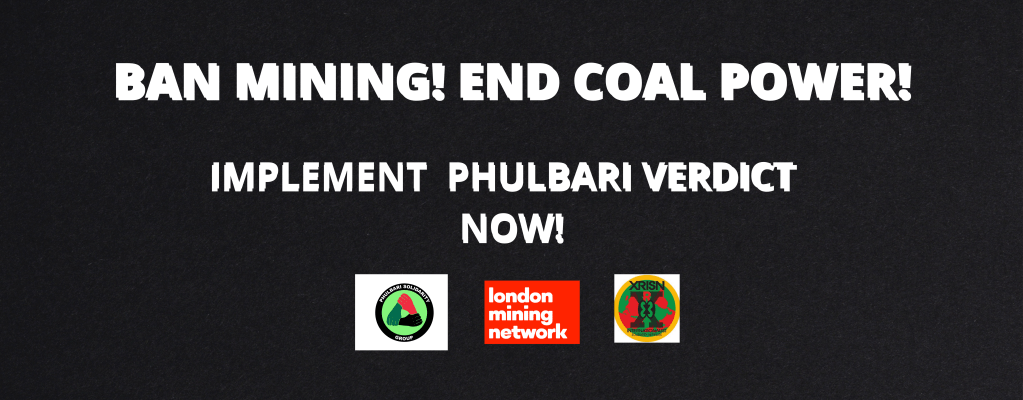

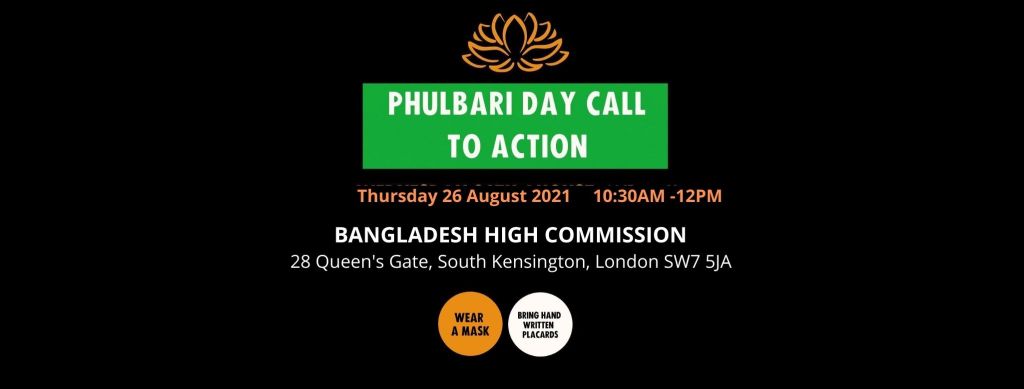
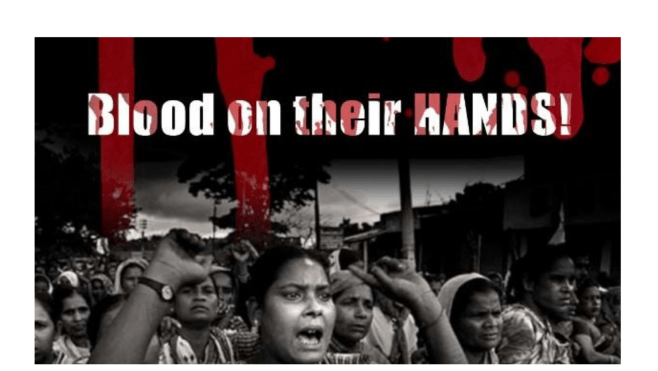
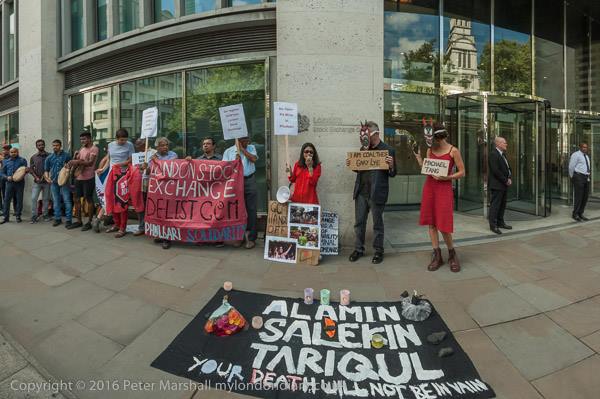
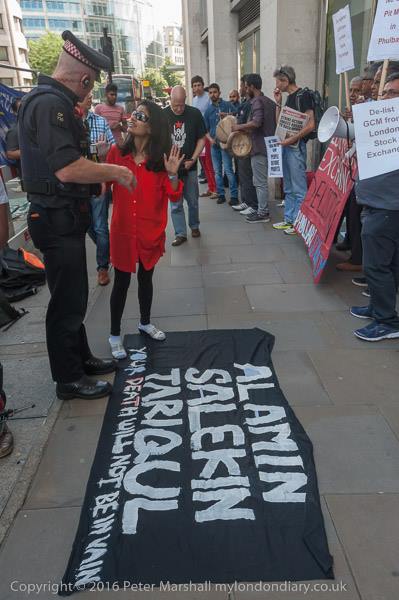
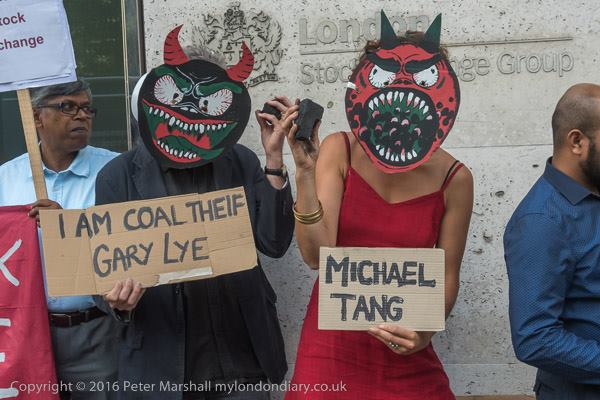
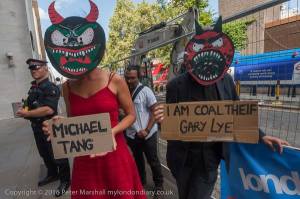
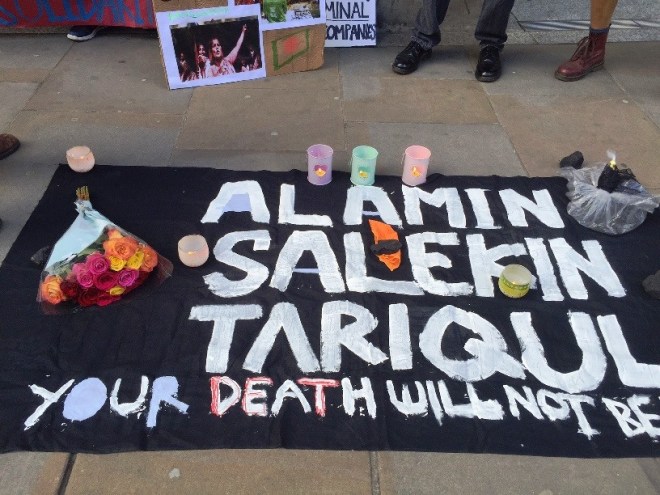
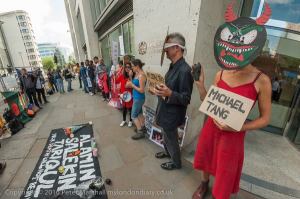
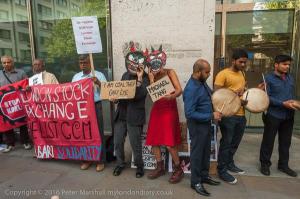
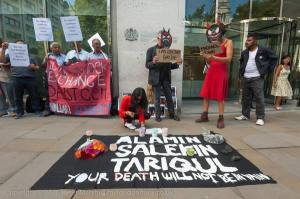
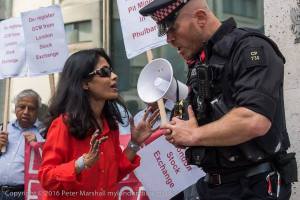
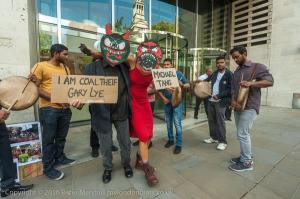
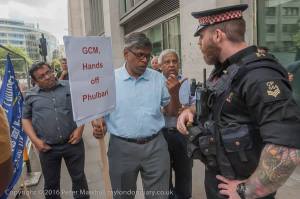
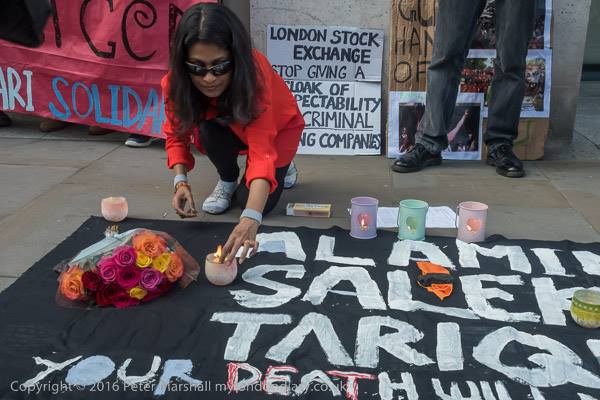

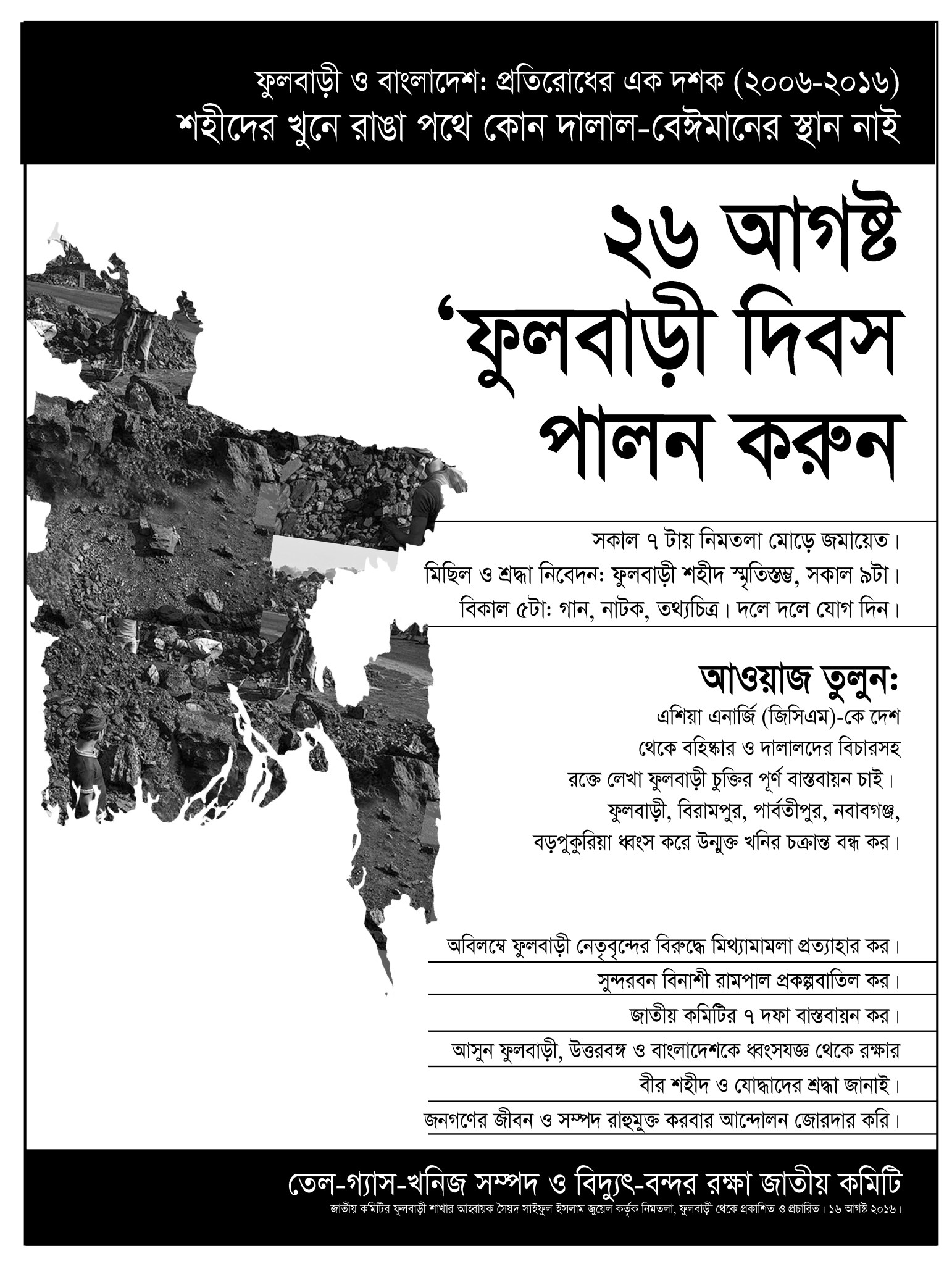
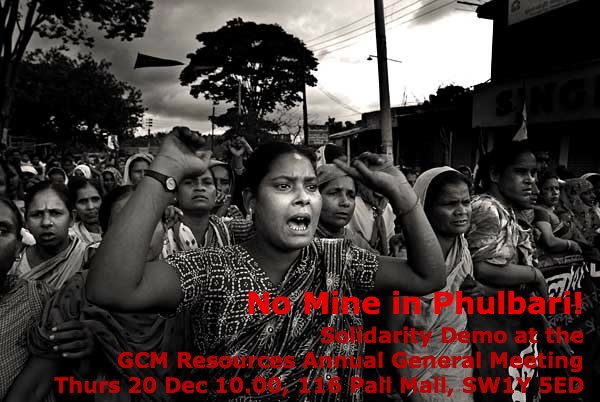
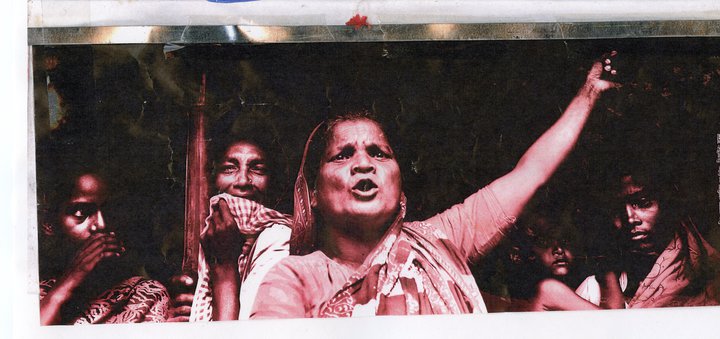



 The authorities of the Barapukuria Coal Mine Company (BCMC) have rejected the feasibility study report of the Institute of Water Modelling (IWM) on open-pit mining at Barapukuria North, as it did not match the study’s “terms of reference (TOR)”. “The study did not reflect the impact of open-pit mining on the groundwater level as a result of dewatering, irrigation and supply of drinking and industrial water. We need a further detailed report,” a senior IWM official told The Independent on Monday.
The authorities of the Barapukuria Coal Mine Company (BCMC) have rejected the feasibility study report of the Institute of Water Modelling (IWM) on open-pit mining at Barapukuria North, as it did not match the study’s “terms of reference (TOR)”. “The study did not reflect the impact of open-pit mining on the groundwater level as a result of dewatering, irrigation and supply of drinking and industrial water. We need a further detailed report,” a senior IWM official told The Independent on Monday.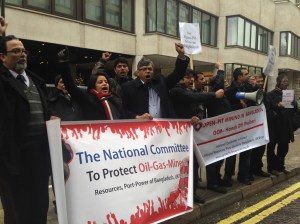
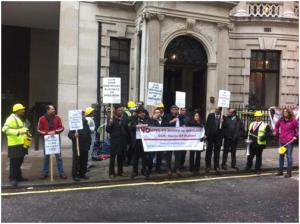
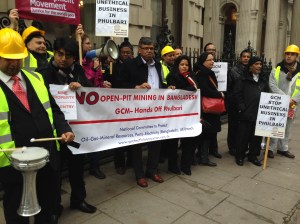
You must be logged in to post a comment.